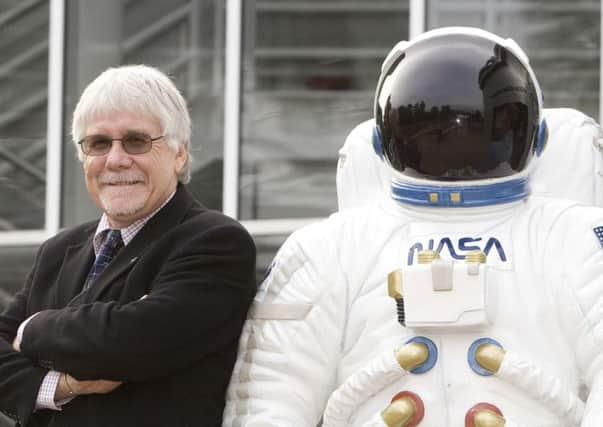Ex-Armagh Planetarium chief criticised for financial affairs


It also found he used public funds to buy equipment which he kept at home months after stepping down, and paid for his retirement functions using a planetarium credit card.
The details of the spending connected to Dr Tom Mason, director of the Armagh Planetarium from 1996 to 2015 (and its accounting officer for almost all of that time), emerged in a detailed report into the planetarium’s accounts.
Advertisement
Hide AdAdvertisement
Hide AdAuditor general Kieran Donnelly’s report said: “The role of accounting officer carries with it personal responsibilities in relation to regularity and propriety and the conduct of accounting officers should be beyond reproach.
“In my view, Dr Mason’s actions were not up to this high standard, in his conduct as an accounting officer.”
One of the things the report found was in March 2015 Dr Mason undertook a five-night trip to Utah in the US, “fully funded” by a supplier.
He did not seek prior approval from the chair of the planetarium governing board, or advice from the overseeing Department of Culture, Arts and Leisure (DCAL), or record it in the planetarium’s hospitality register, the report said.
Advertisement
Hide AdAdvertisement
Hide AdThe next month Dr Mason awarded a contract to the same supplier for three years’ support of the planetarium’s projector and related technology, at £15,000 per year. A business case was not prepared.
He told internal auditors the purpose of the trip was to facilitate carriage of a meteorite, and discuss a film which he had provided input on.
Fraud investigators recommended no further action.
The audit report said concerns were raised around a range of other financial issues.
They included using a planetarium credit card to pay £422 for a retirement function in 2015; poor record keeping; using a credit card to buy £1,000 of gift cards for staff bonuses, a video game console and flowers as well as supermarket expenditure; a drone was bought and fraud investigators questioned whether it was “really value for money to purchase this item for one small shot of film”.
Advertisement
Hide AdAdvertisement
Hide AdIn addition, he kept computers and cameras at home almost 10 months after retirement before returning them.
Dr Mason advised the auditor that in his time as director he fought to restore the Armagh Observatory and Planetarium as a world-renowned centre for astronomy education, and his intention was to save the planetarium as much money as possible.
The Audit Office said that “regardless of his intentions” his actions in relation to the £15,000-per-year projector contract, and others, “were a breach of the planetarium’s procedures and his accounting officer responsibilities”.
Problems with legal aid and victims’ funds
Whilst the affairs of Armagh Planetarium were perhaps the most colourful thing to emerge from the audit report, it also detailed problems with spending in the fields of legal aid, and victims’ payments.
Advertisement
Hide AdAdvertisement
Hide AdThe report said that ever since 2003, the accounts of the Legal Services Agency NI (and its predecessor body) had been “qualified” due to the “lack of effective counter fraud arrangements and weaknesses”.
And while there had been “progress” , its accounts were qualified once again, with auditor Kieran Donnelly saying: “I’ve been unable to obtain sufficient audit evidence to conclude that a material amount of legal aid expenditure has not been claimed fraudulently or in error”.
The amount handed out in legal aid in 2016/17 was £101.6m (of which £59.4m was for civil cases, and £42.2m criminal ones).
Meanwhile, the Victims and Survivors Service, which parcels out funds for groups aiding Troubles victims, misspent a large proportion of its money. Spot-checks of its 2015/16 accounts showed that £280,000 out of its £1.7m in grant expenditure was found to have been “ineligible”.